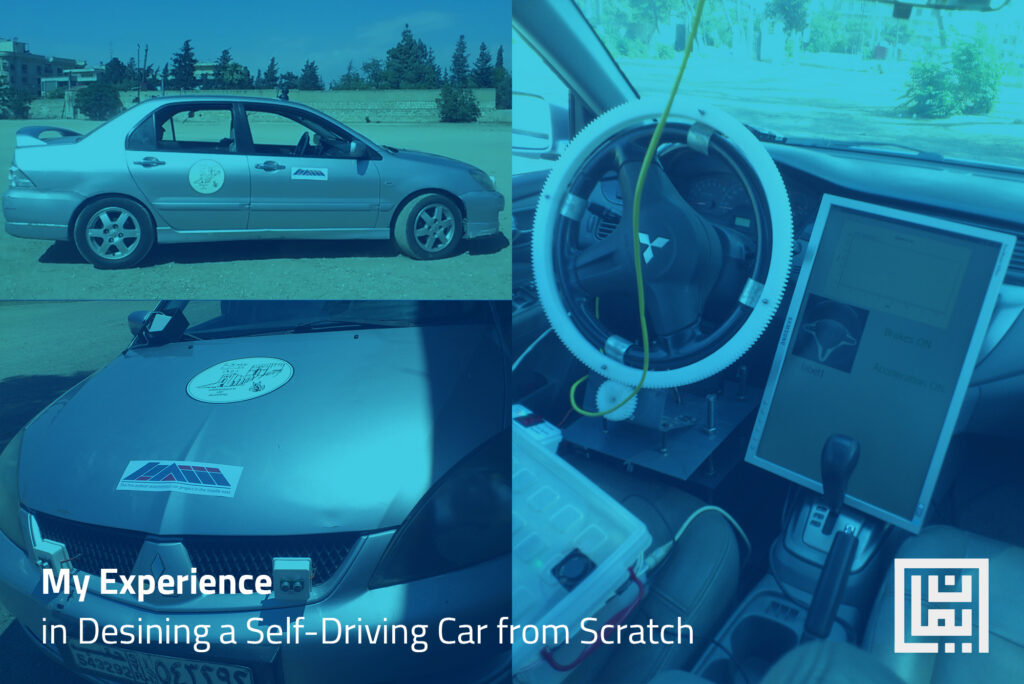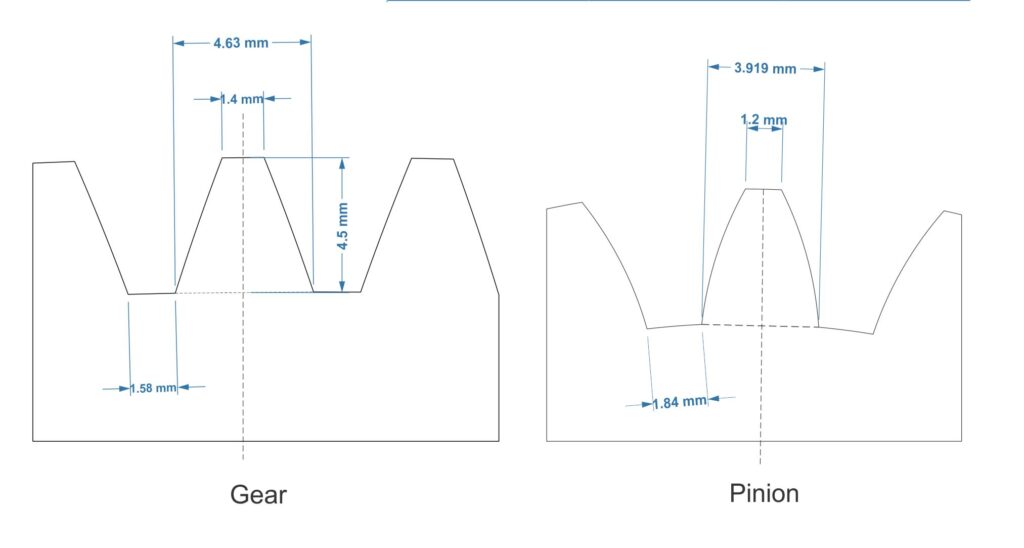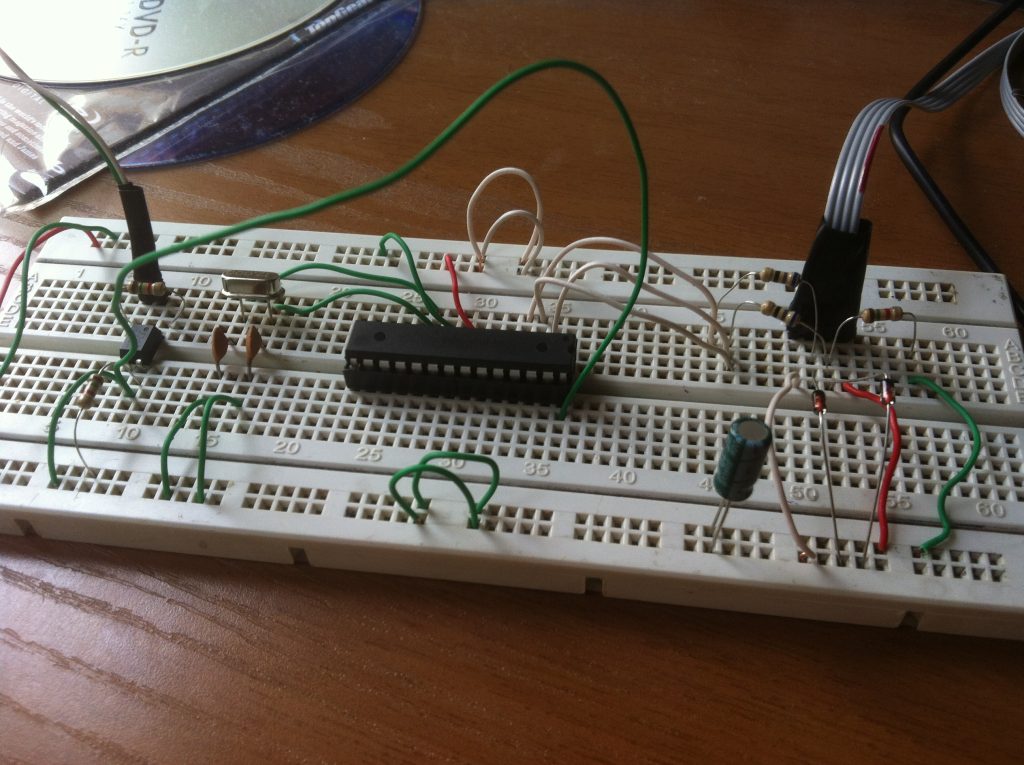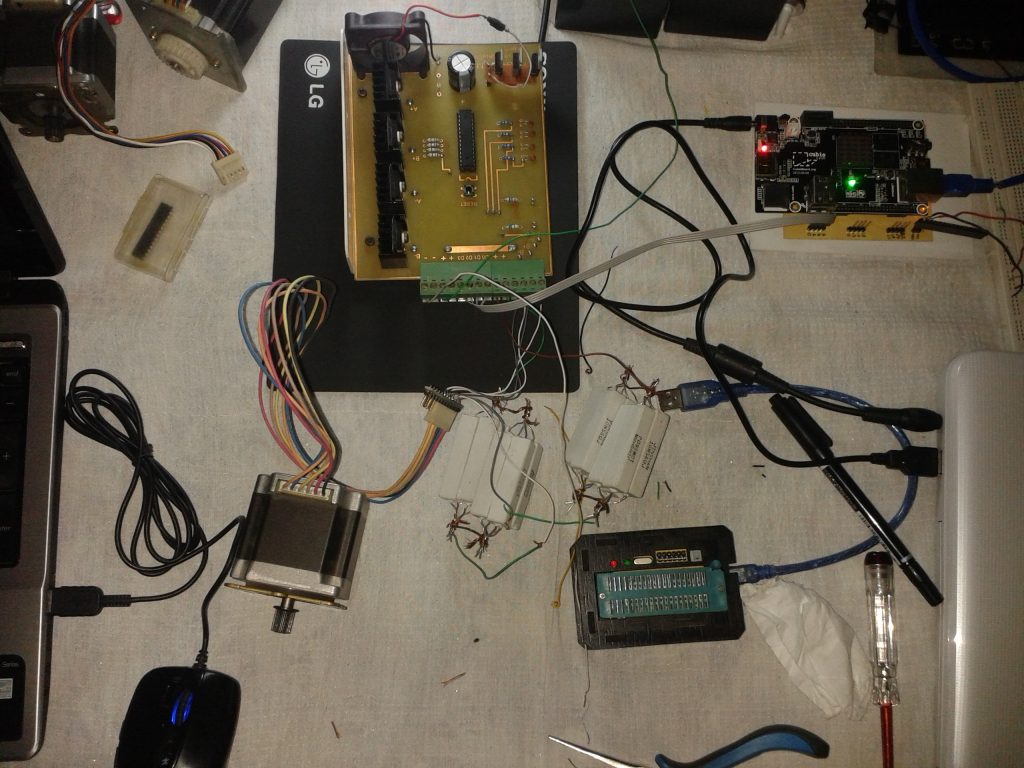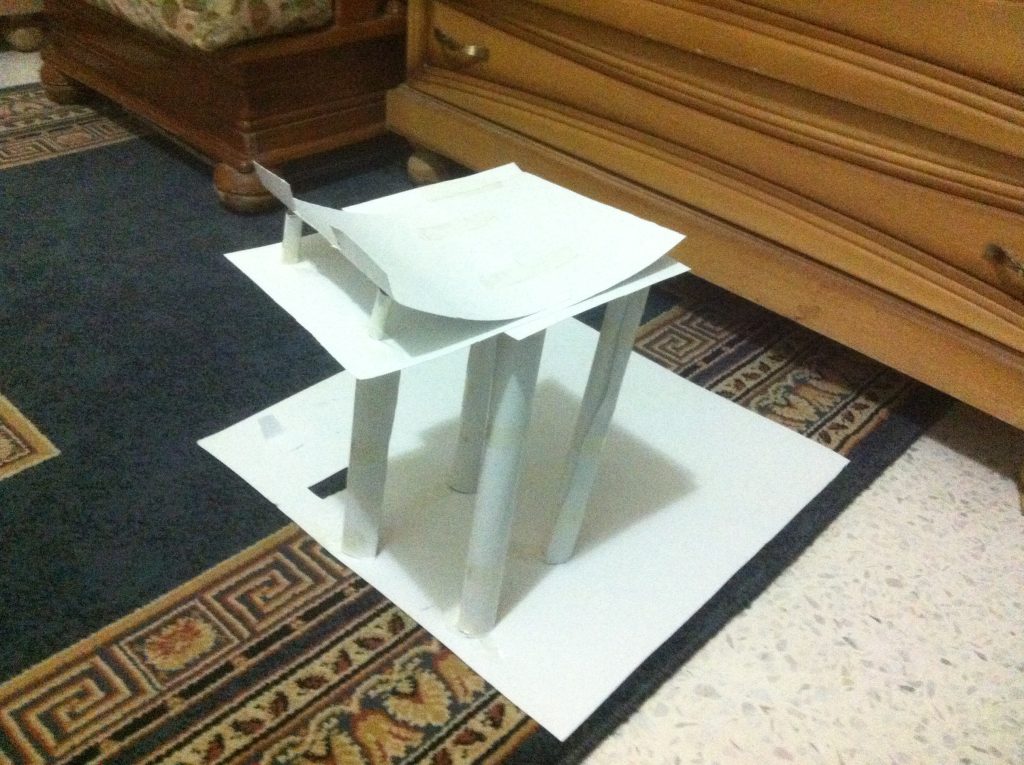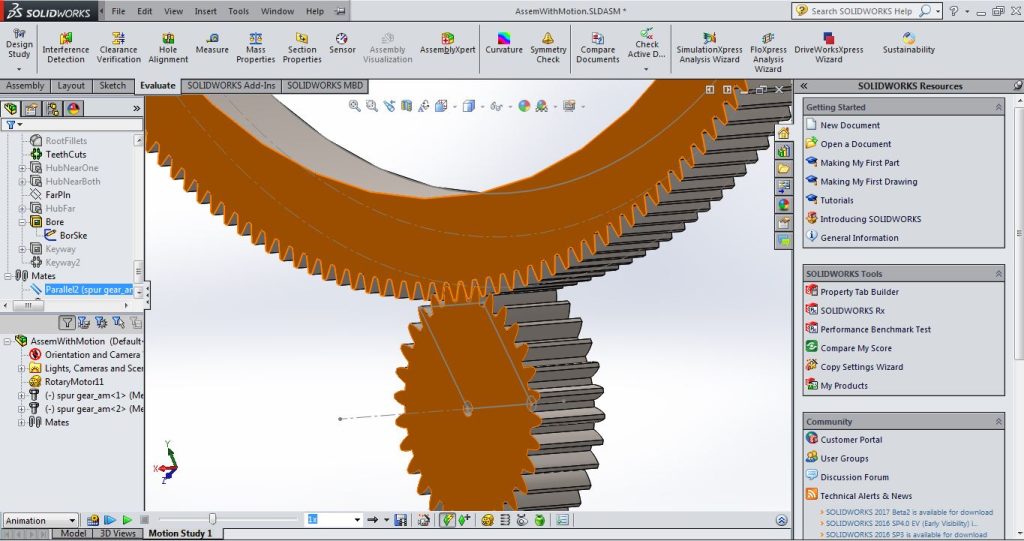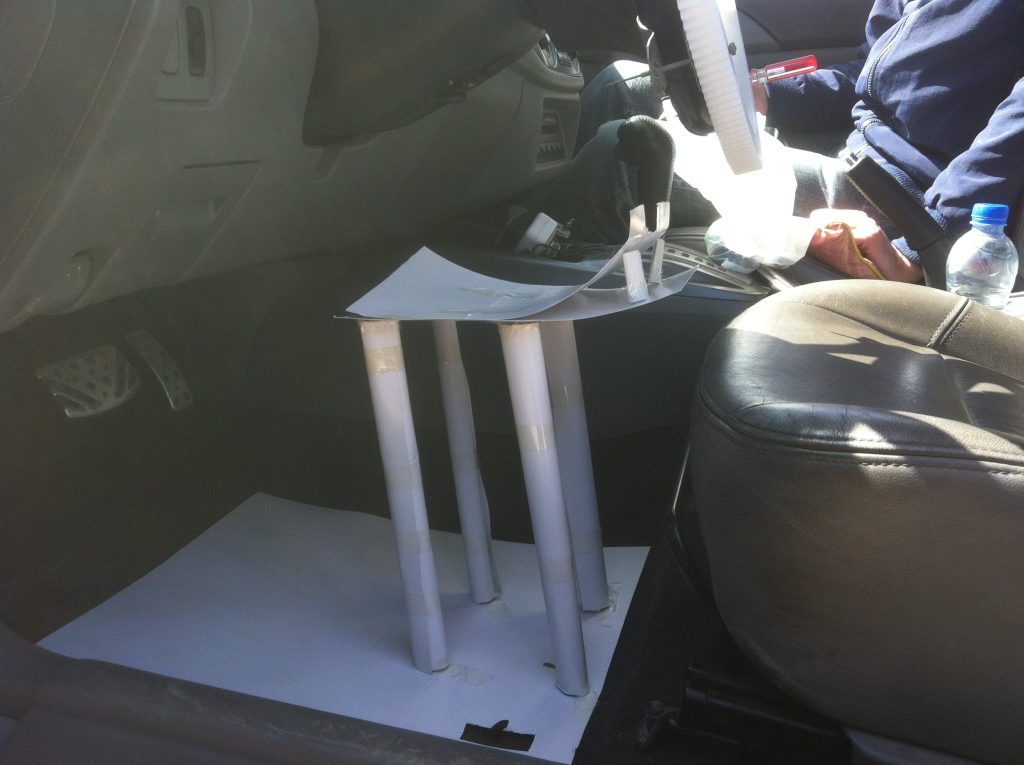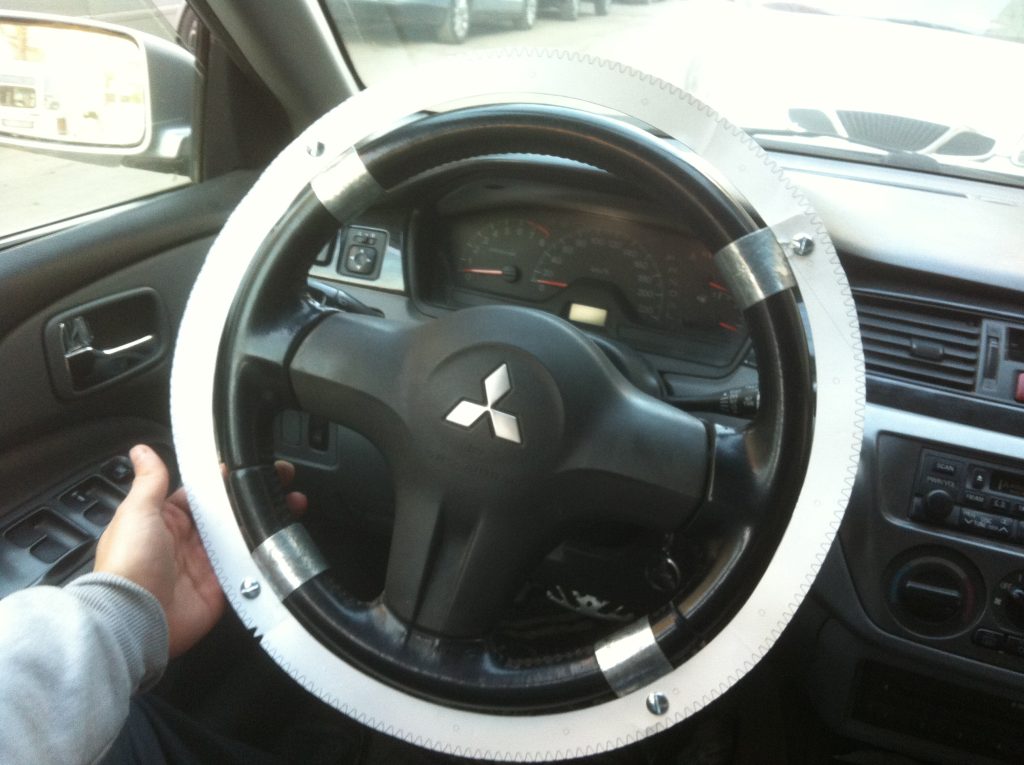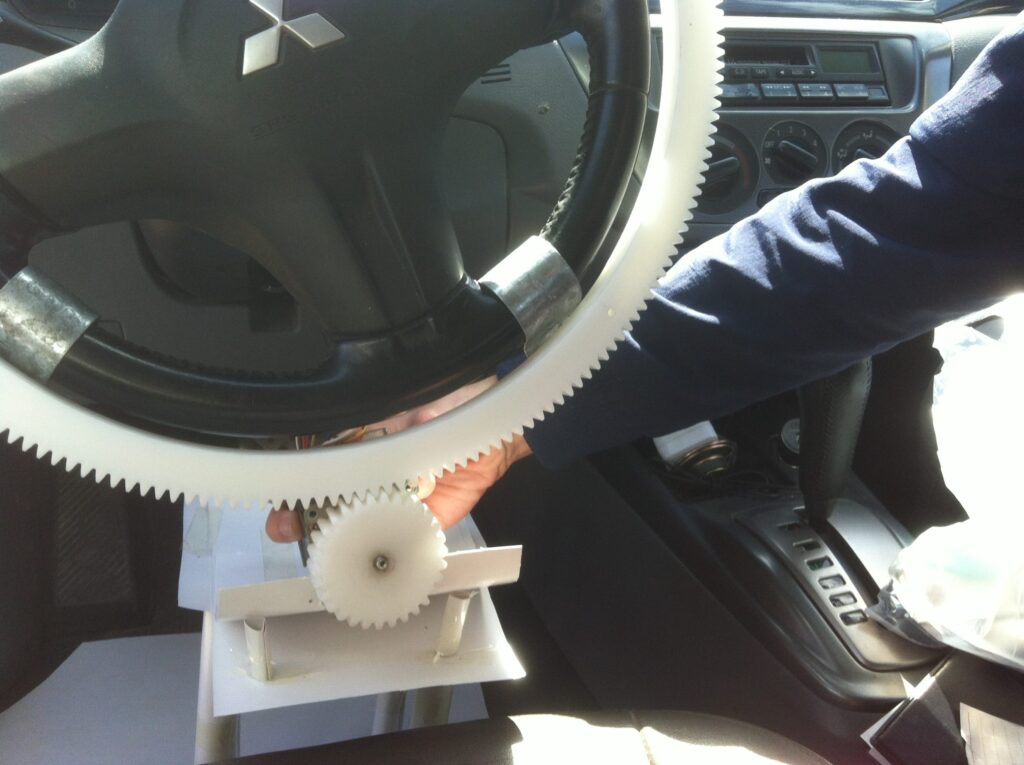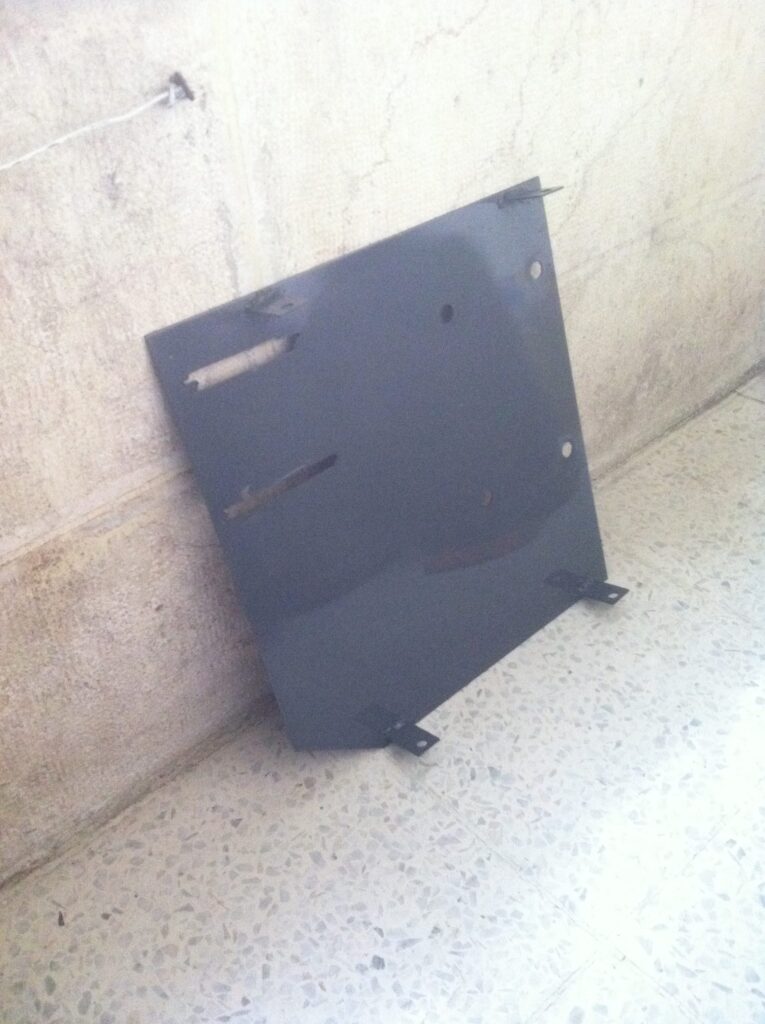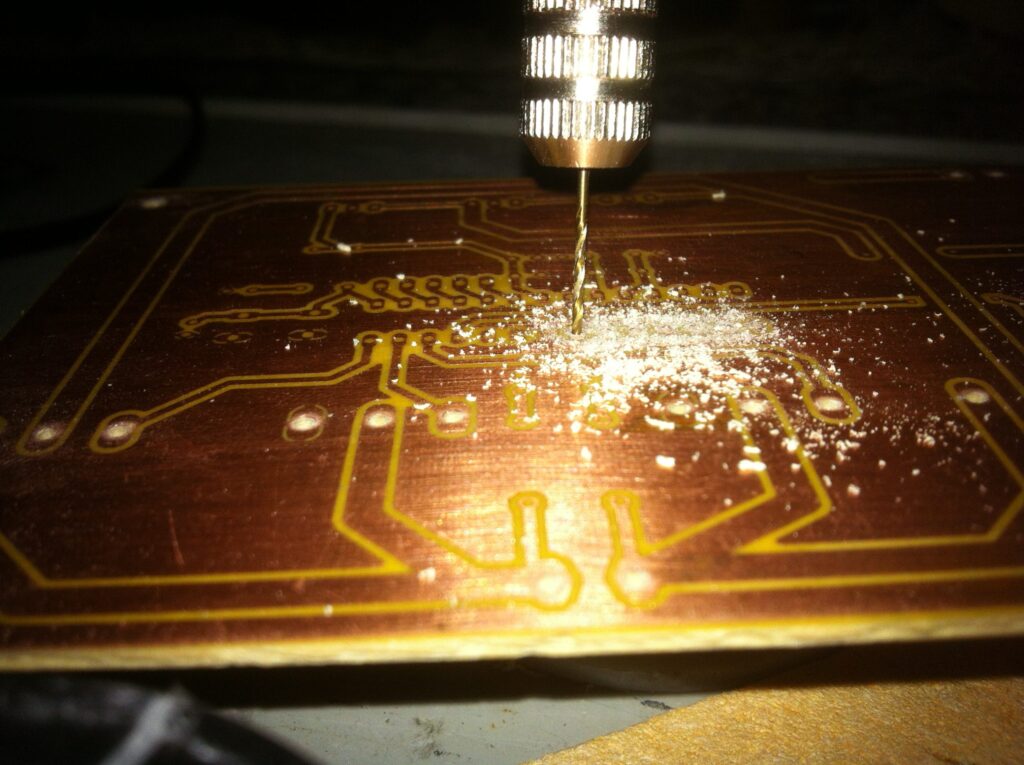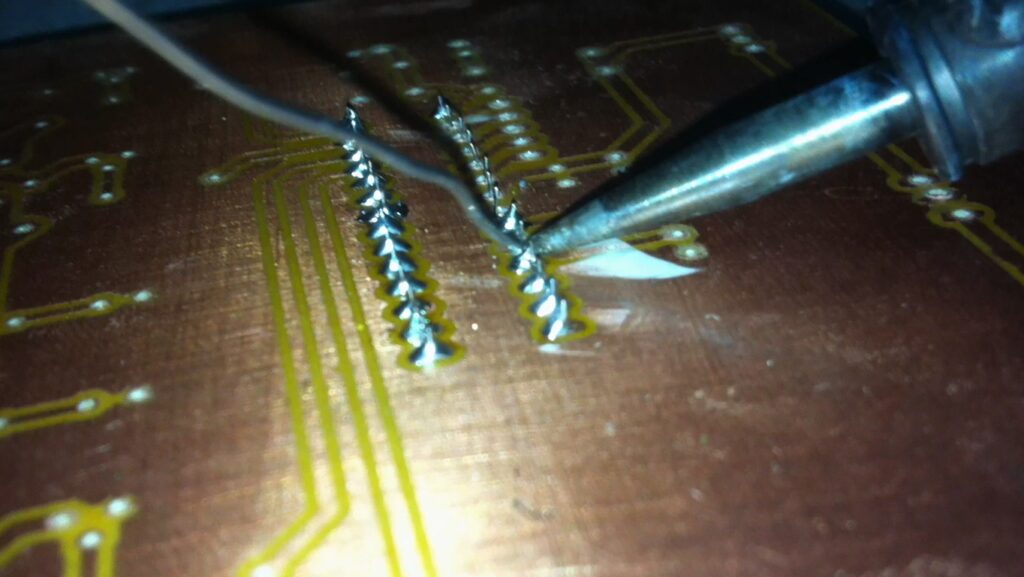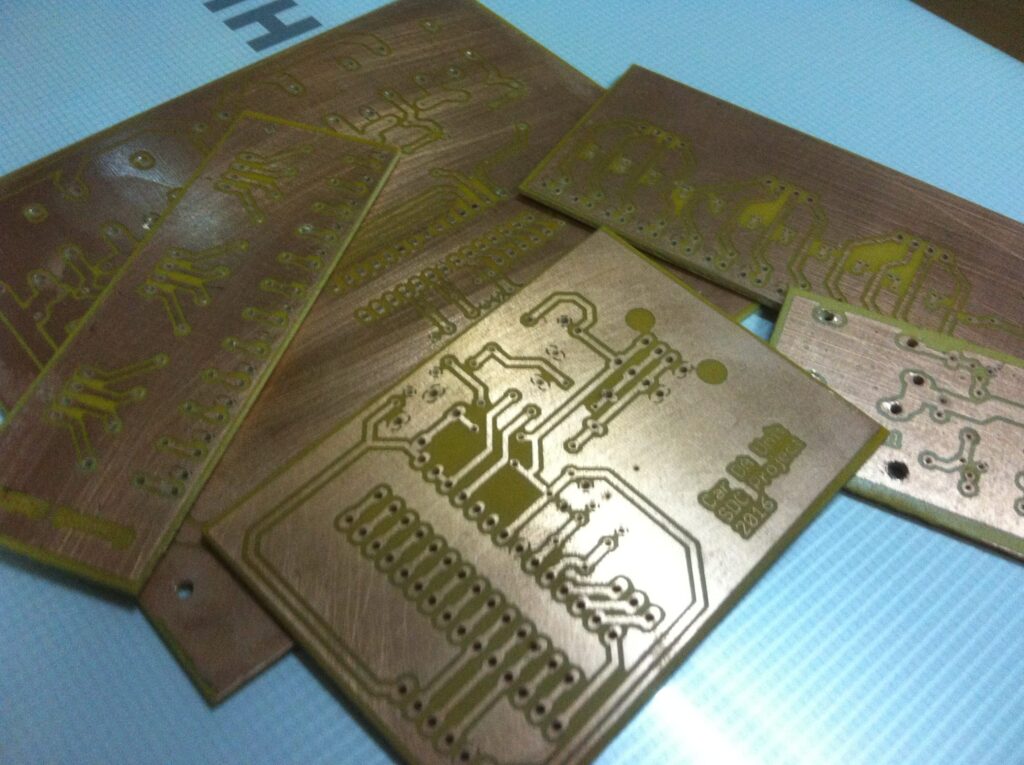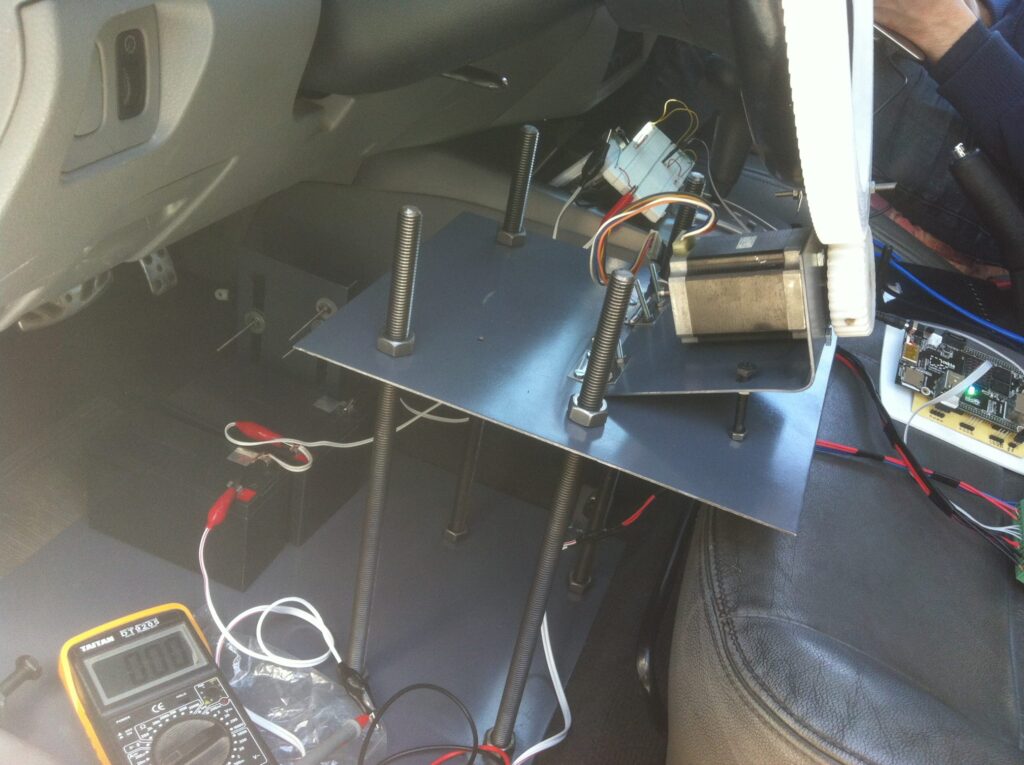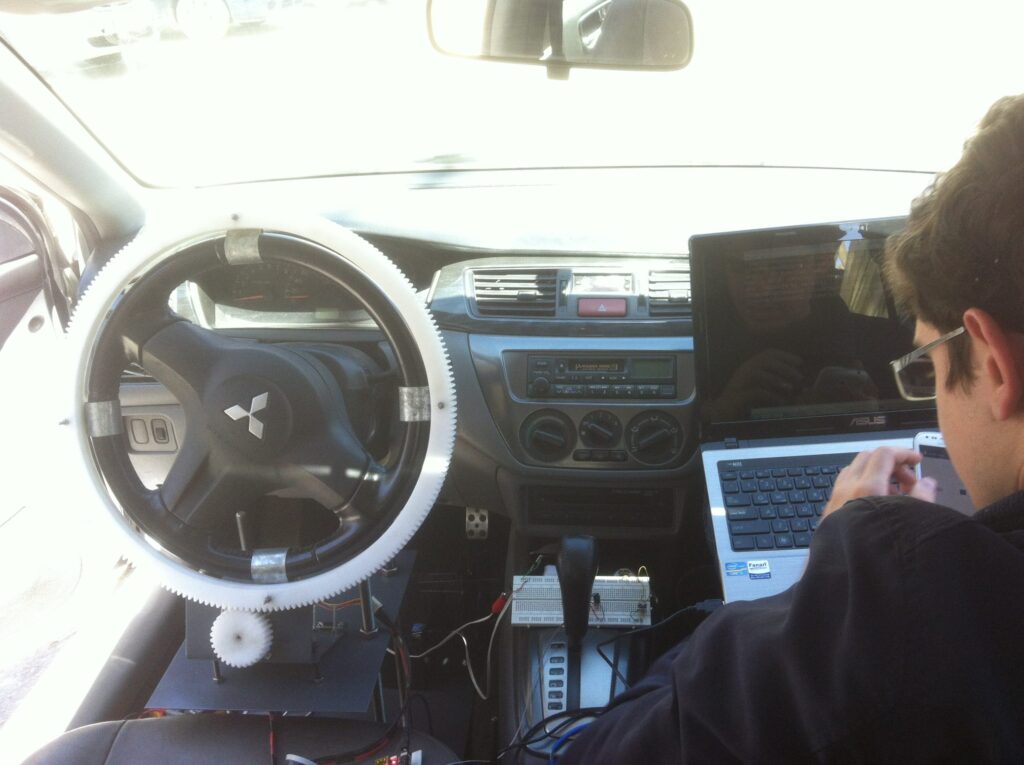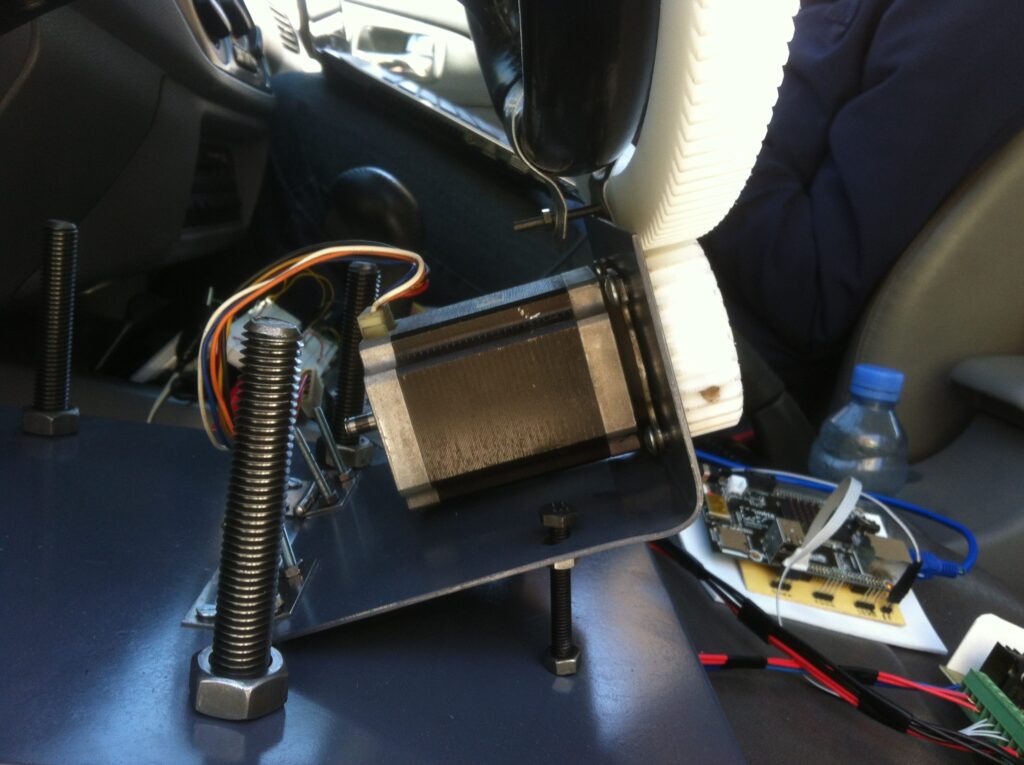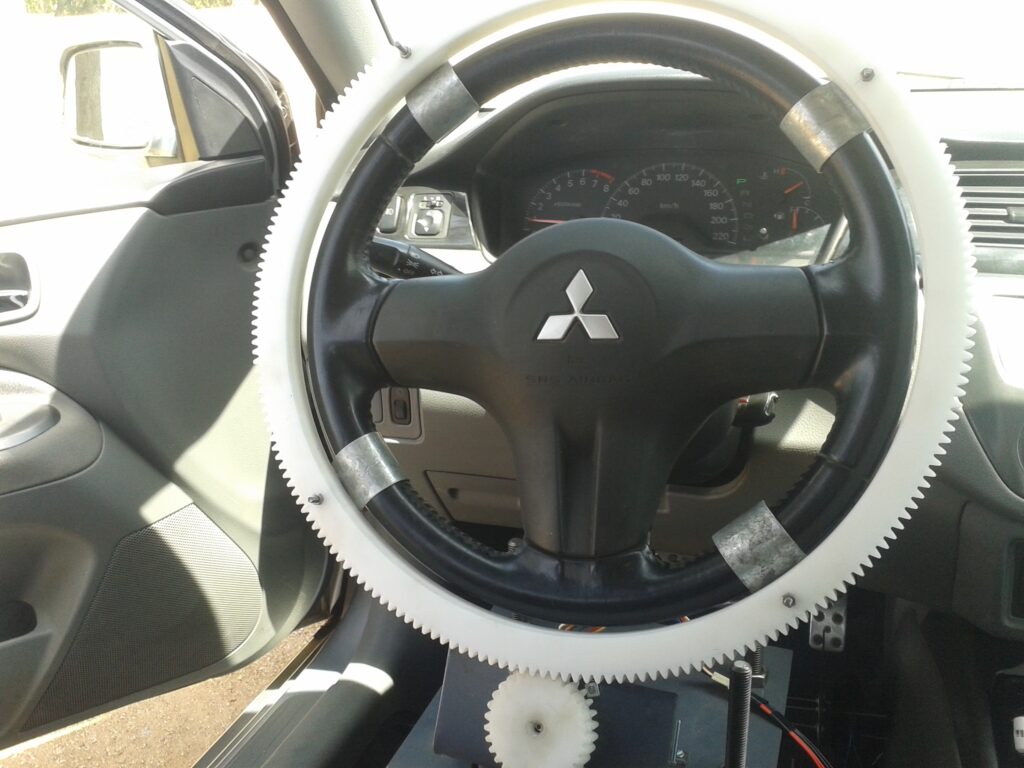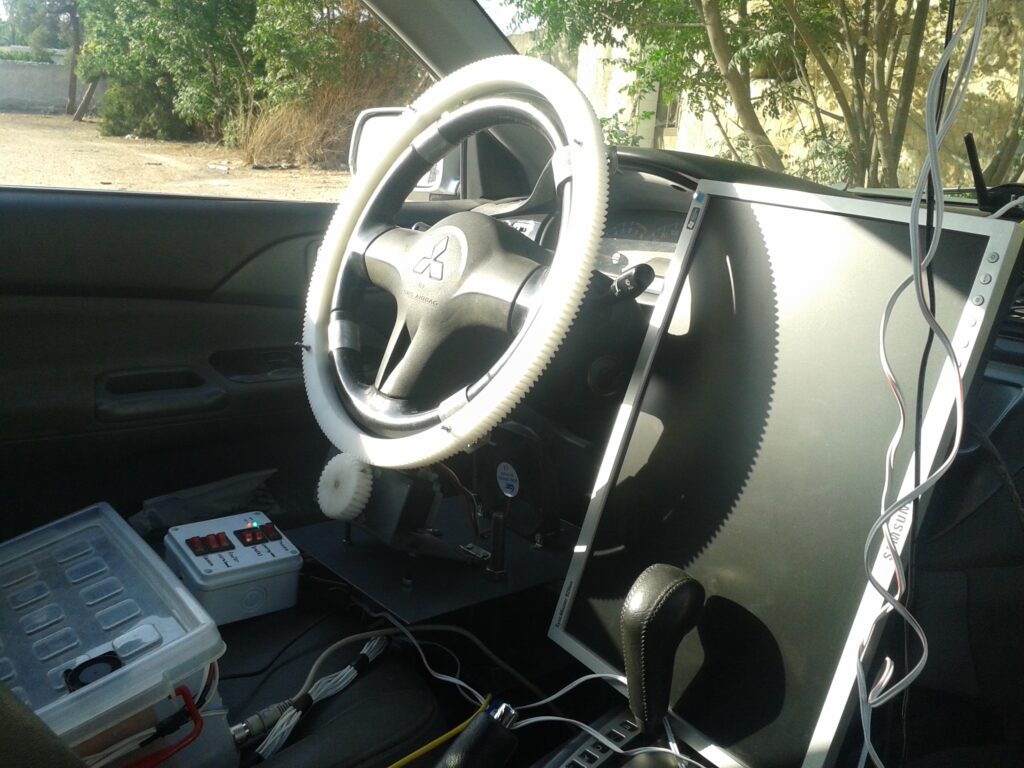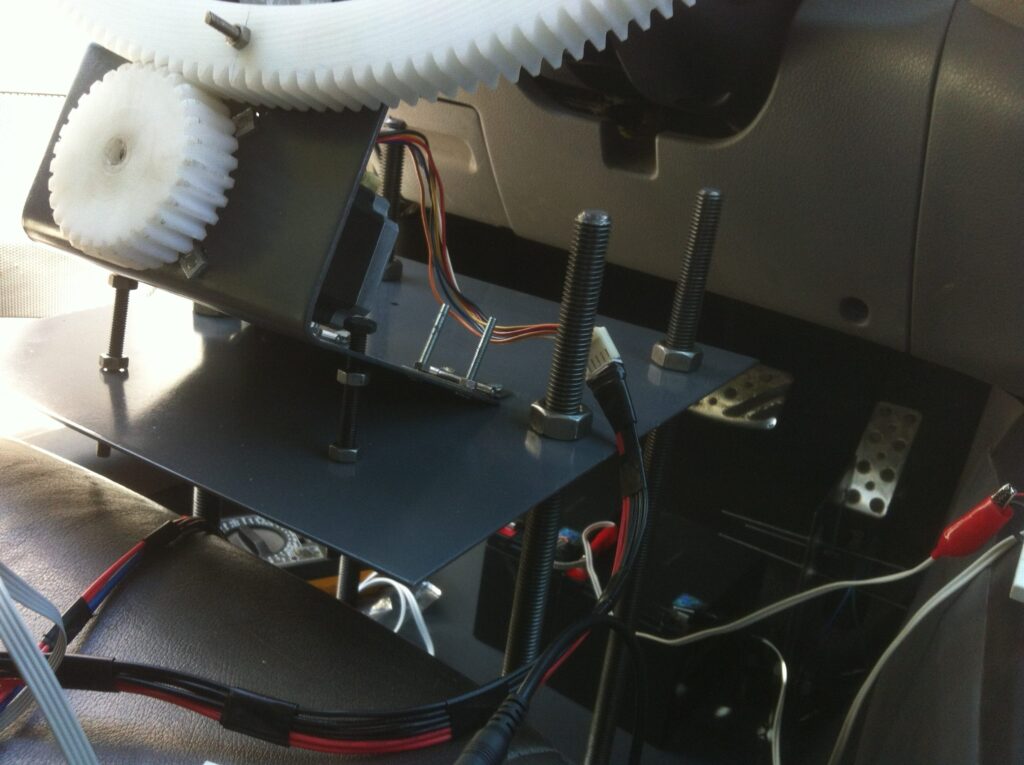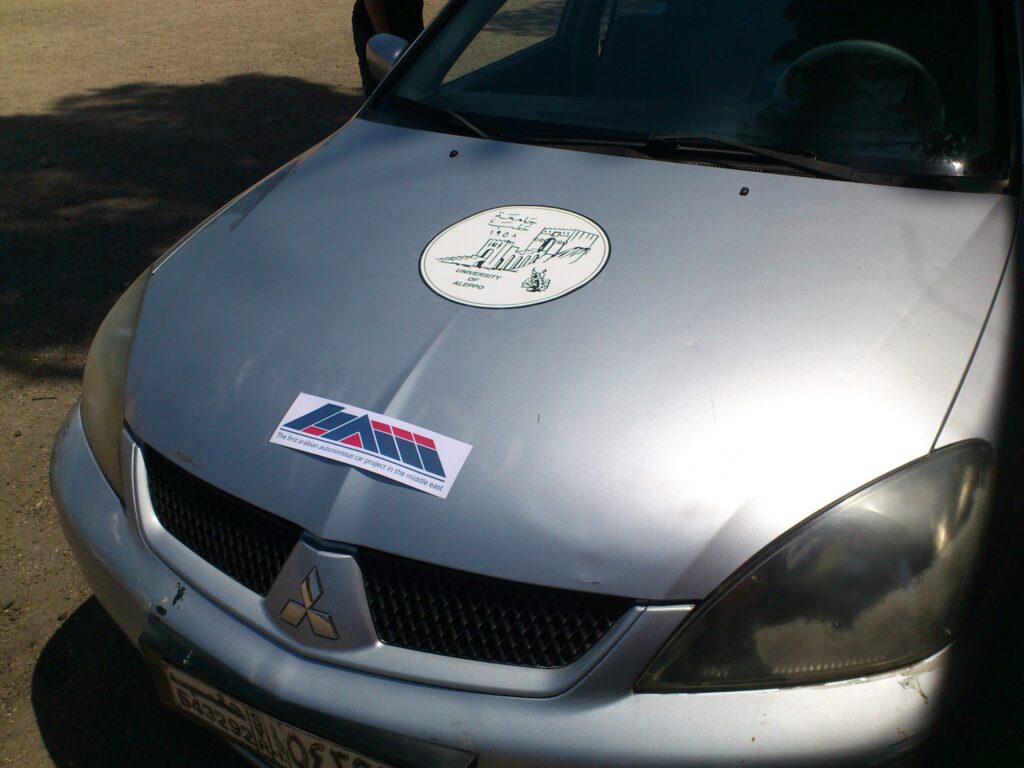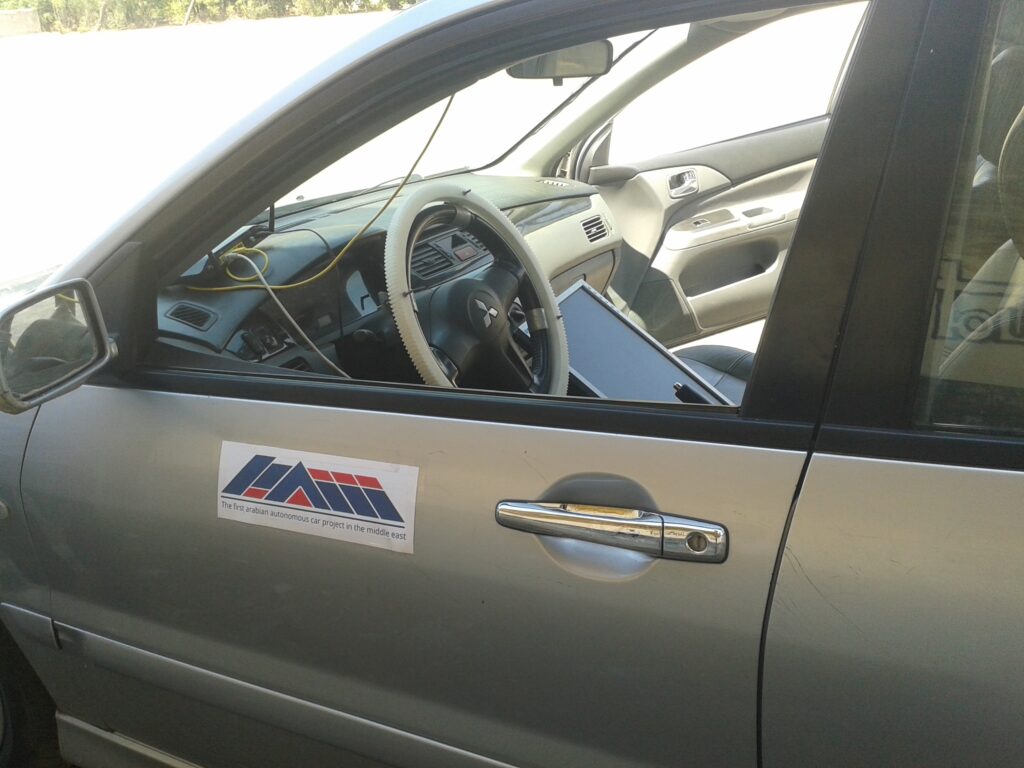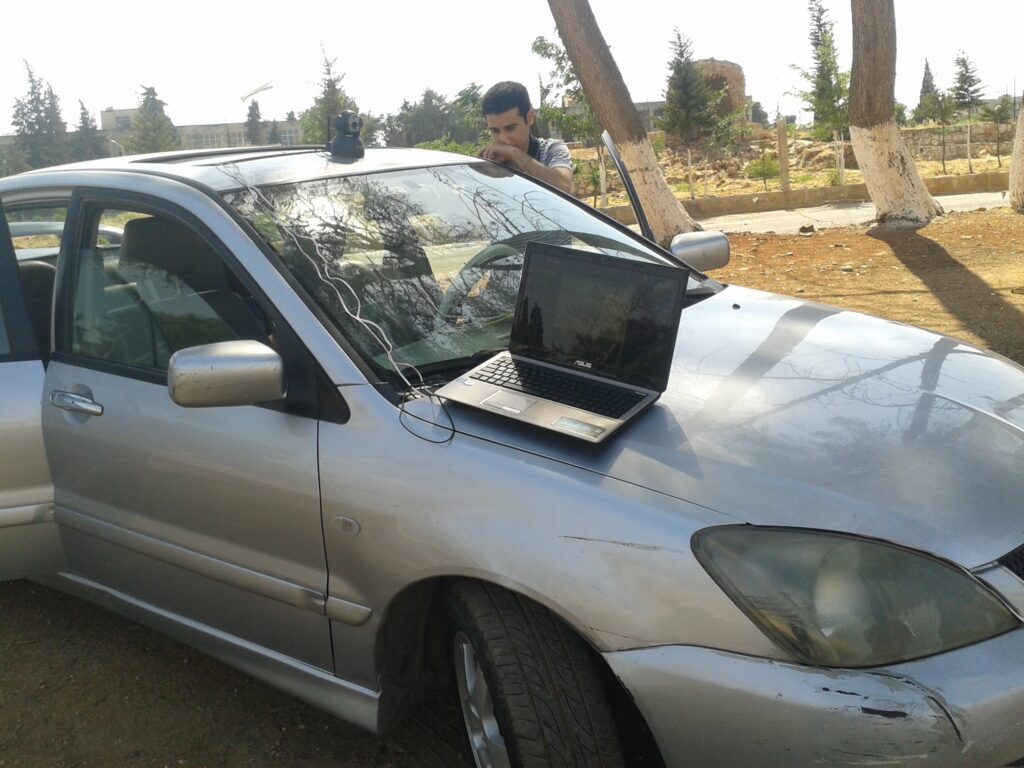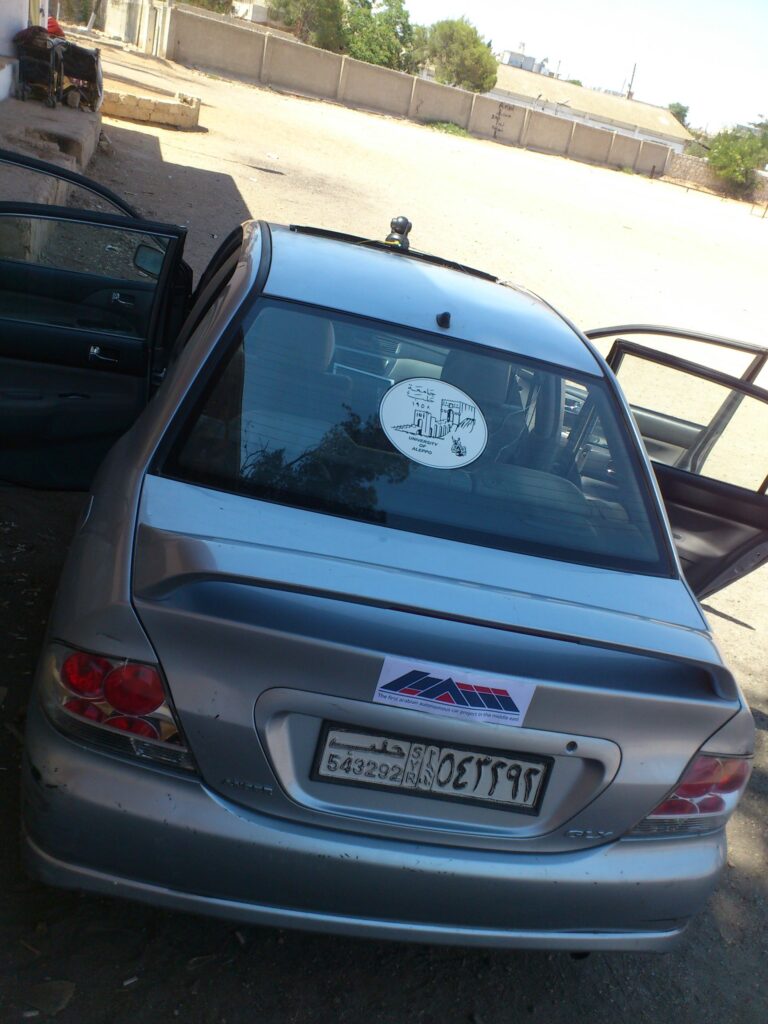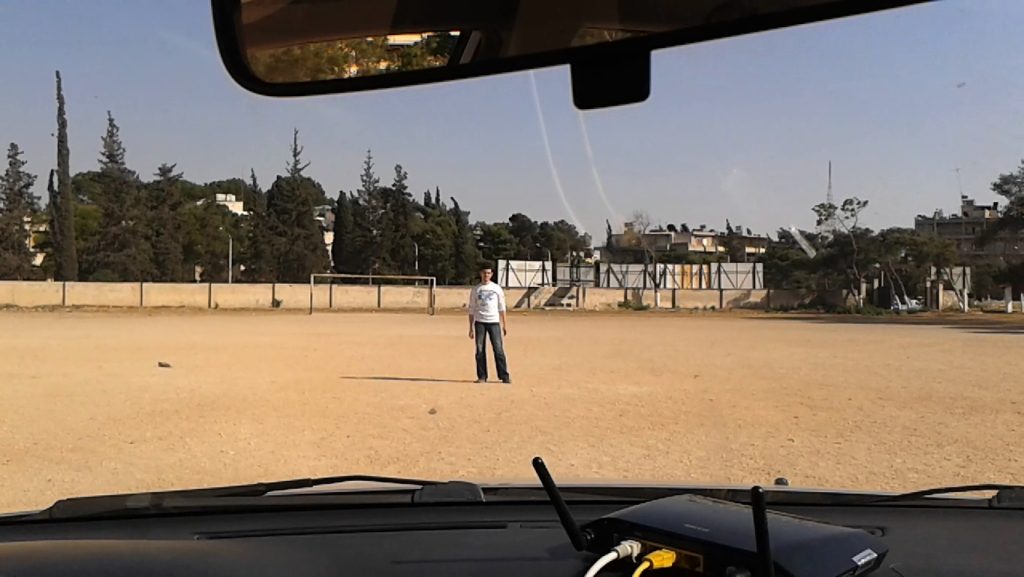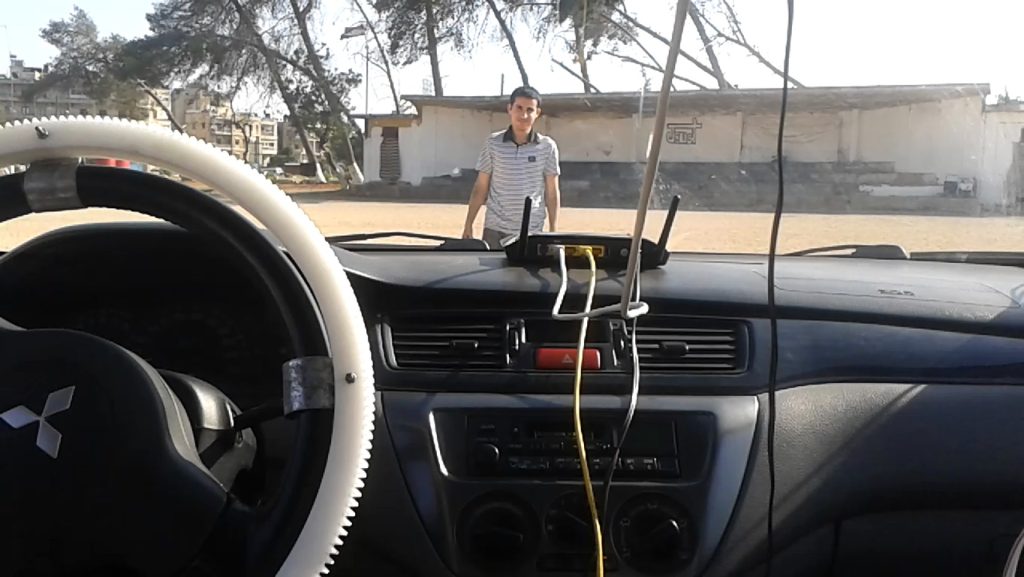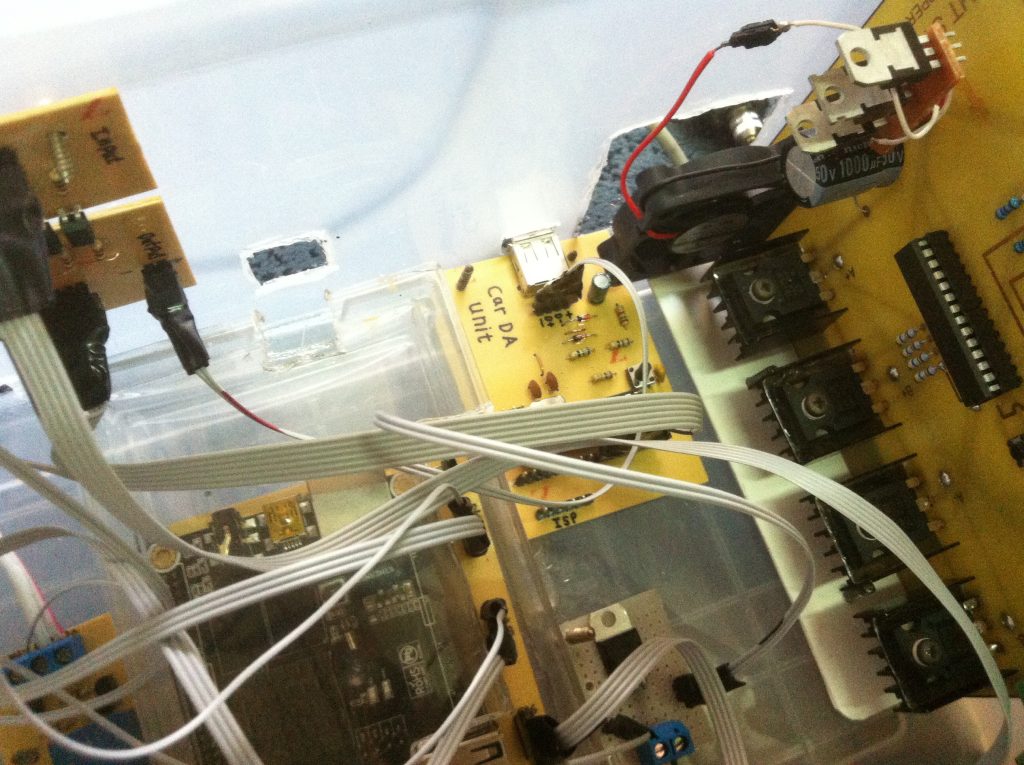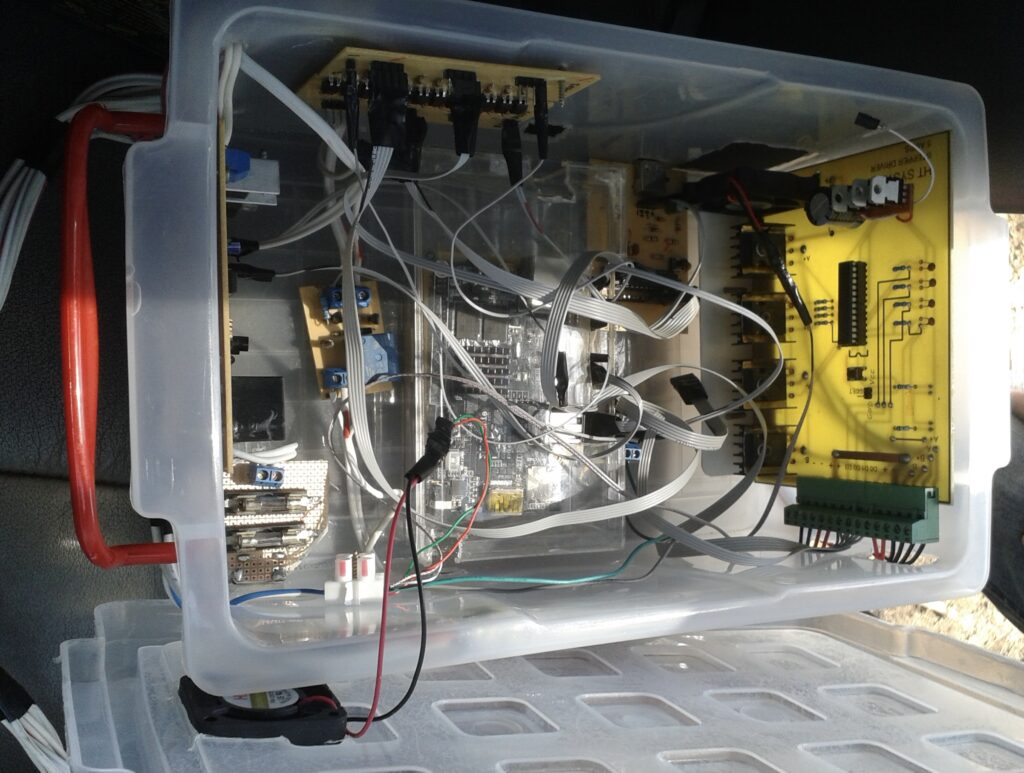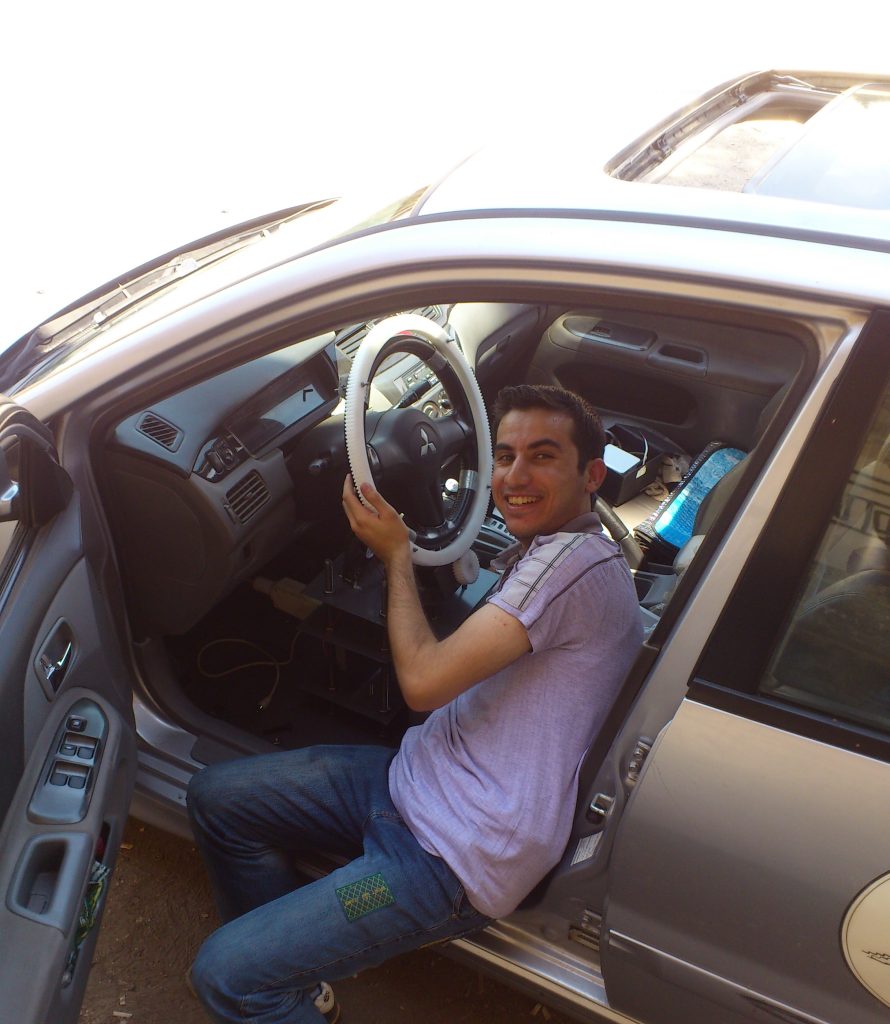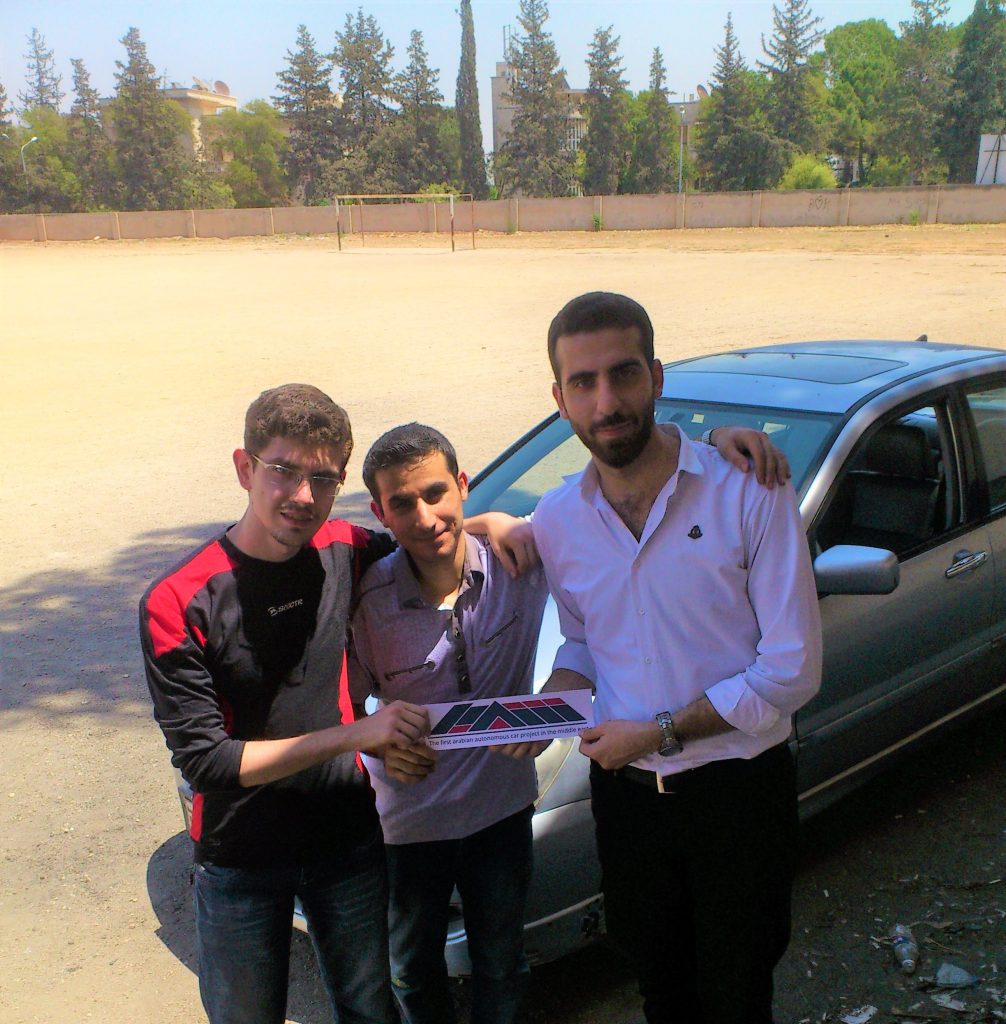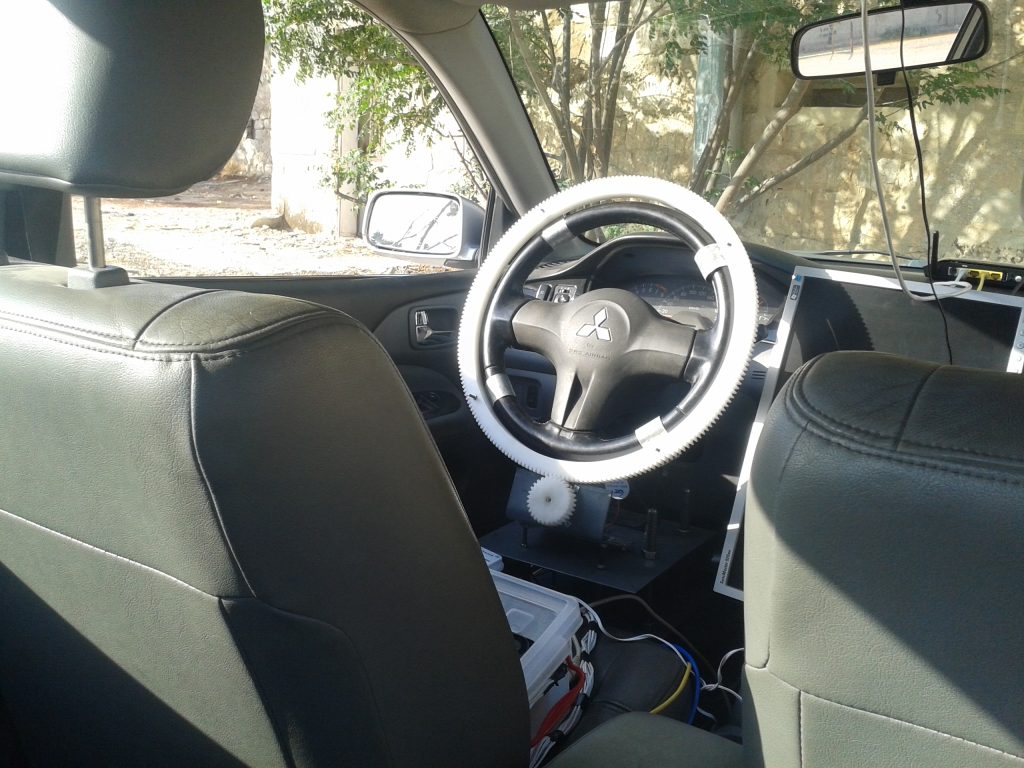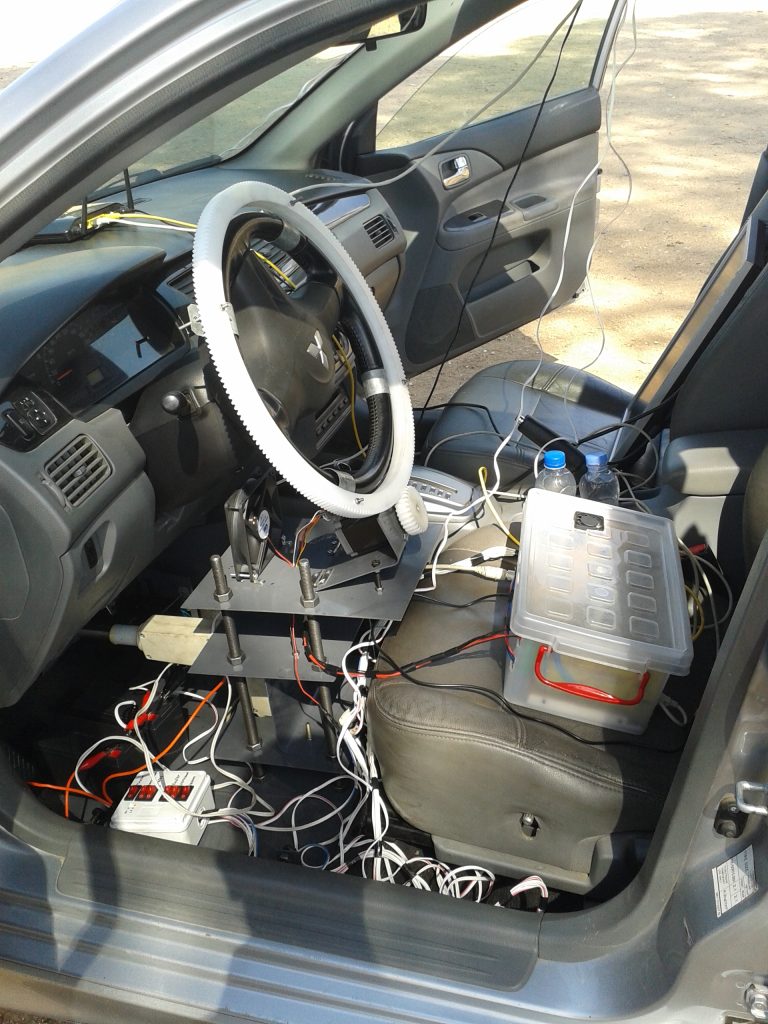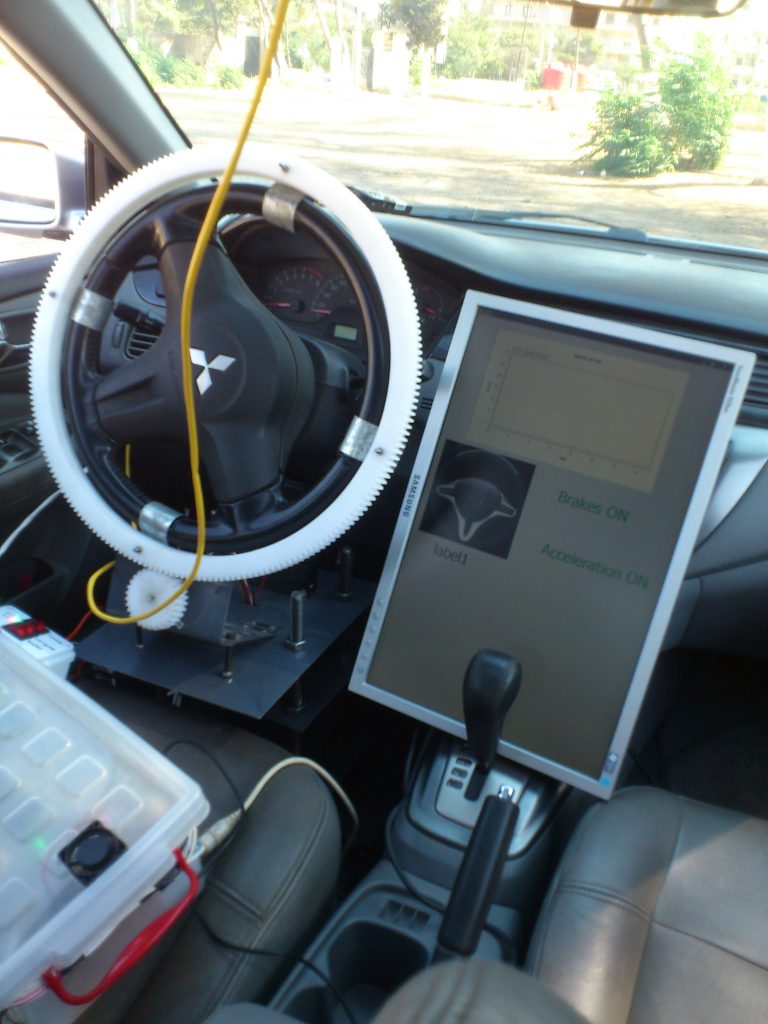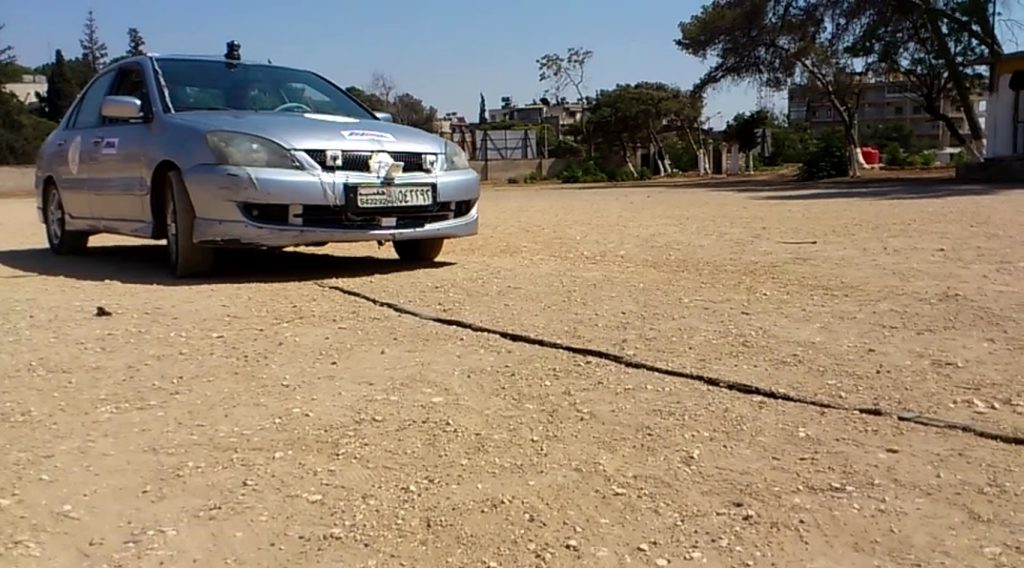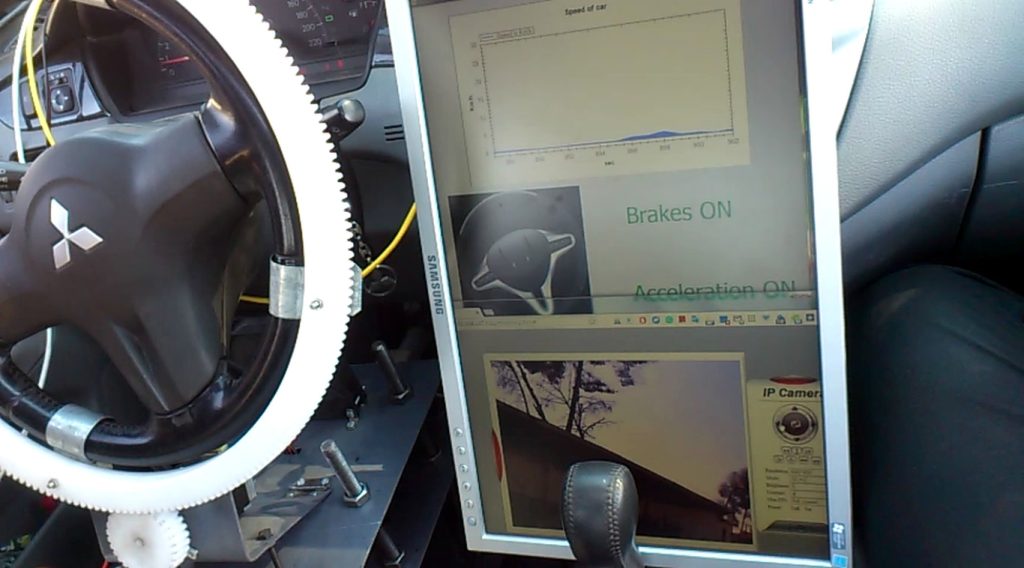In this blog post, I share my story with this project and the valuable lessons I learnt during this experience.
You can watch the following video that demonstrates the concept and experiments conducted in Aleppo, Syria:
This work began as a graduation project at the University of Aleppo during the 2015-2016 academic year and was later continued as a research project, and published in the British journal Taylor & Francis in 2018. The project recently won second place in the 2021 National Robotics and Intelligent Systems Science Competition in Damascus.
Why Did I Choose to Work on This Idea?

Many people asked me why I chose this idea and what the real benefit was of sacrificing and working for a year and a half on this project under the challenging conditions of the Syrian crisis.
Answering this question now, several years after starting, is easy, but it wasn’t at all easy if you had asked me in 2015. Local community didn’t accept the idea at the time—and may still not accept it now. This often happens with any new idea aiming to create something unprecedented, where it is seen as impossible or sometimes even crazy!
Community might be right in its opinion if we think and understand what I was trying to achieve; attempting to reach a fraction of what major global companies like Tesla, Google, Mercedes, and BMW were working on, with their open budgets and advanced technology, seemed unrealistic. Especially considering the lack of local experience in this field locally, the impossibility of importing high-tech components due to global sanctions on Syria, and the internal challenges posed by the war at the time and continuing to this day. This made society, and especially many young people, unreceptive to such ideas, or even not able to take them under consideration.
Is the ceiling of possibilities we set for ourselves often a false ceiling?
Is exploring new industries and research fields possible under the current circumstances in Syria and the Middle East region?
Seeking answers to these fundamental questions, I decided to proceed with this idea. It was a tough call though, I was gambling with my graduation! That’s why I was literally praying and making Duaa for this project to succeed.
Nevertheless, I knew at the time that creating something from scratch, deemed impossible by local community, with a limited budget, in an entirely new and unprecedented field in Syria, and under tough local conditions, would be the greatest lesson in my life, whether it succeeded or failed. And indeed, after it succeeded–Alhamdulillah, here I am writing about what I learned from this lesson, hoping it will be a great motivator for anyone with determination and ambition to do a similar project.
The Beginning is to Find a Team Who Believe in the Idea with You
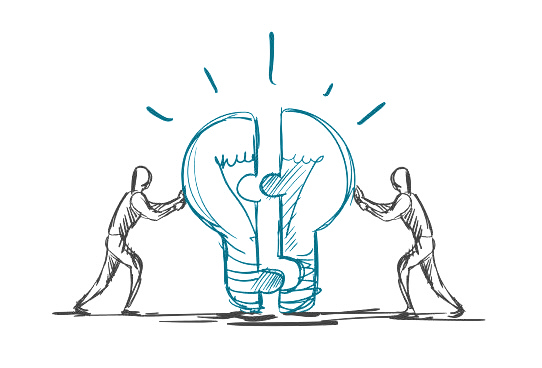
After making the bold decision to move forward with designing and manufacturing the project components locally from scratch, the next step was forming the team, which was difficult given the societal rejection of such ideas, as mentioned earlier. Fortunately, my friends Mohammad Al-Kurdi and Abdulrahman Dawara had enough courage to accept this idea despite the significant risk to their graduation from the Faculty of Electrical and Electronic Engineering if it failed. What added to the positivity was that we were already forming a team at the startup Beetronix at the time, where we were working on the first product for managing schools and educational institutions. Our shared experience at Beetronix allowed us to understand each other’s practical capabilities well, in addition to acquiring skills in dividing and coordinating efforts within work teams. With our collective belief in this idea, achieving the project became possible, and we were ready to start.
If you have a team that believes in bold ideas, I assure you that you are on the path to achieving the impossible!
But Wait a Moment!
Having a ready team does not mean that the idea will be accepted by the supervisors at the University of Aleppo. Therefore, we decided to ask two supervisors, one in the field of computer vision (Dr. Hazem Issa) and the other in the field of mechatronics and intelligent systems (Dr. Abdulkader Joukhdar). We hesitantly presented the idea to Dr. Abdulkader first, and after explaining it, we asked him, “Is there hope for the idea?” He responded with a sentence that I have not forgotten all these years: “Yes, of course! Hope is in Allah!”
This sentence was enough to unleash our potential as young people at that time. I learned from it the importance of encouraging work teams and igniting their ambition, especially for bold ideas.
Contrary to expectations, we were also surprised by Dr. Hazem’s encouragement to proceed with the idea, emphasising that the success of the experiment lies in the lessons we will have at the end, which is the most important aspect.
Everything Starts Small and Modest and Then Develops
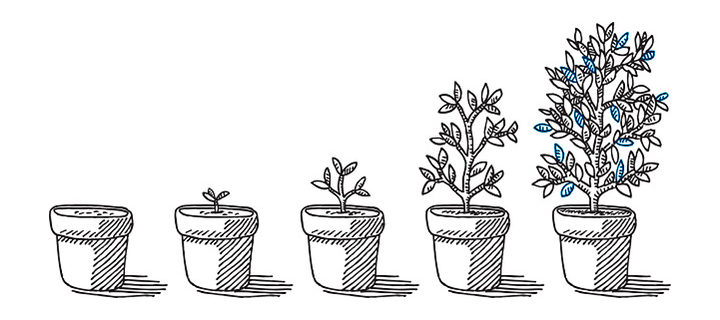
I believe the most dangerous thing about the beginning is the lack of patience for the seed and rushing to get the tree as quickly as possible, even if it means taking some shortcuts and detours. But in reality, this delays reaching the goal and sometimes prevents us from reaching it at all.
We were aware that the project would require precise planning in addition to effectively linking several fields (computer vision, mechanical design, electronic and electrical design), but we were not sufficiently familiar with any of these fields. Therefore, we had to start from scratch through learning and experimentation.
We began by conducting experiments with some of the simplest electronic circuits and learning to design them using computers. We also learned a mechanical design program to execute design and simulation processes, and we even prototyped the driving system using cardboard!
The goal was to discover unknown areas and plan through simulation before moving to the costly manufacturing stage later.
Measure Twice, Cut Once.
This English proverb emphasises the importance of planning before execution. After this stage, we did not need to redesign any of the hardware we manufactured!
This stage was not easy, of course, as we consumed the majority of the available project time without achieving anything tangible on the ground. This required us to have nerves of steel, as this stage tested our team’s cohesion and belief in the idea they aspired to implement. After several months of mini-experiments, planning, and simulation, we were ready to move on to the manufacturing and real-world application stage.
The Long-awaited Moment and the First Real Test… Ended in Failure!
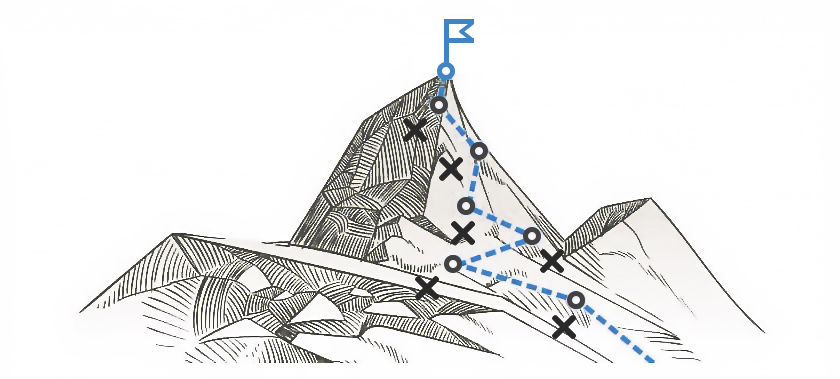
The practical application stage posed a real challenge. You might think this was due to a lack of skills or something similar, but the main reason was the difficult conditions in Aleppo at the time. Often, the required parts and equipment were not available, so we had to use repurposed components from old devices. Additionally, transportation within the city itself was not easy; sometimes, the danger of falling explosive shells posed a risk while manufacturing the necessary equipment. Running in the streets to avoid snipers or other dangers became a familiar and daily occurrence during that period.
Despite these risks– thank god!, we managed to complete and manufacture the first proof of concept model. However, like most new ideas, it did not succeed on the first attempts. This model failed to steer the wheel and move the car autonomously (you can find the technical reasons in the research paper), so going back to the drawing board was inevitable.
After making several corrections and conducting additional small-scale experiments to ensure that the technical issues were resolved, we were ready to test the project again in the real world. The most challenging part of this stage was the insistence on continuing despite the heaps of difficulties and challenges that kept appearing, which at times almost led me personally to despair and to admit the idea’s failure.
Who among us does not experience moments of doubt and helplessness?
This is natural. Make sure you seek Allah’s help at every step and take all the necessary measures alongside your strong belief in your idea. Then you will be able to emerge victorious from these difficult moments.
The Car Drives Itself on the University of Aleppo Campus!
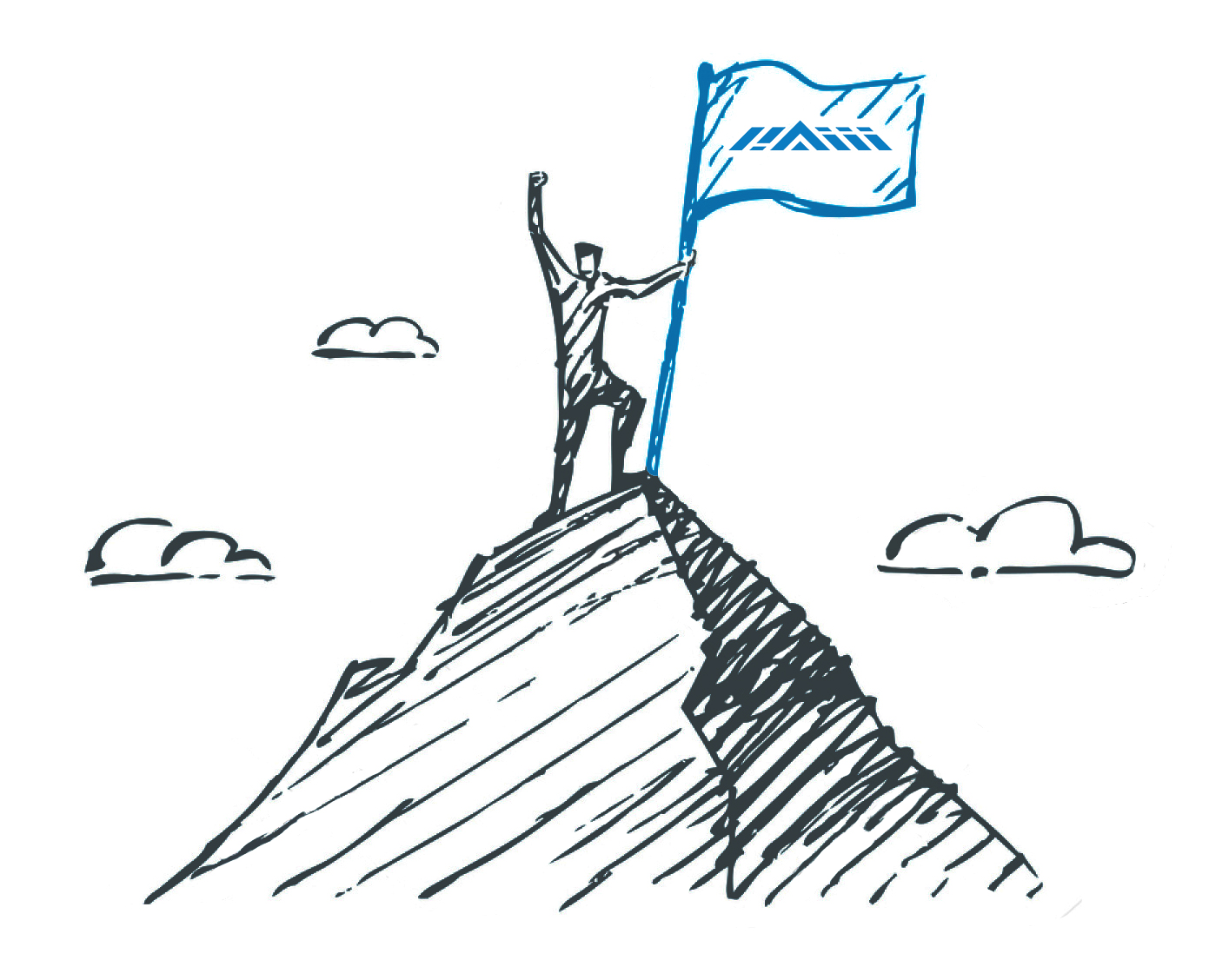
This moment came after more than a year of continuous work and effort, mixed with a sense of pride and fear at the same time! Riding in the car without a driver for the first time was strange and scary because the car’s behaviour was now dependent on the accuracy of our coding. Therefore, some dangerous adventures were inevitable during experiments in this new stage.
The team switched to an Agile work approach at this stage, where we continued to develop the remaining parts in phases by focusing on one feature at each step. This allowed us to handle one challenge at a time instead of multiple challenges simultaneously.
By applying this concept to the first model that successfully steered the wheel, we managed to continue developing the same model by adding brake control and obstacle detection, then developing the ability to recognise the road and self-drive, and finally adding the acceleration control.
Practical experiments at this stage took on a new dimension, as programming and logical errors turned into truly dangerous situations. I will never forget the car’s wrong decision once to press the throttle and go at full speed, accompanied by my friend Abdulrahman’s quick reaction to pull the handbrake. We also tested automatic braking ourselves by standing in front of the car to make it stop automatically (yes, you guessed right, it failed to stop once while my friend Mohammad was standing!).
Sometimes risks must be taken to achieve something new!
The risks in this project were indeed great, but Allah’s facilitation and immense kindness were our allies at every moment. I surely have many other stories to tell, but there is no space here. What comes to mind now is the immense surprise at my parents’ agreement to use the car at that time and their constant support and encouragement! Despite these risks and adventures, we lived through the most enjoyable and proud moments during this stage, Alhamdulilah.
Transforming the Project into Scientific Research to Add a Global Mark
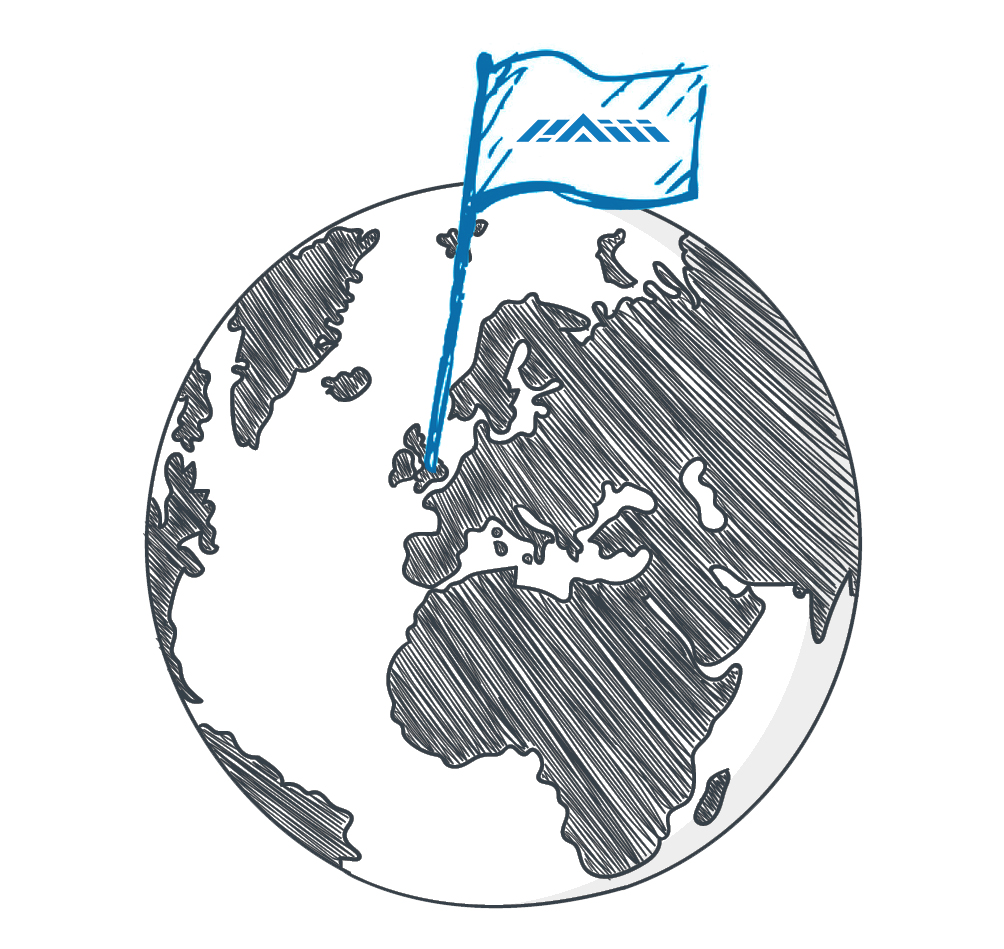
Although the project succeeded locally in Syria, it lacked proper academic reference and contained some methodological weaknesses. For example, the road recognition system relied on a simple Android application, and the project overall lacked numerical results to prove the validity of the model achieved. Therefore, it was necessary to continue developing it with a complete scientific overhaul.
I decided to take on this task in coordination with my supervisors Dr. Abdulkader and Dr. Hazem, even though I had not yet completed my undergraduate degree. The importance of publishing this project and completing it correctly to secure a place for it in the global academic community could not bear any delay.
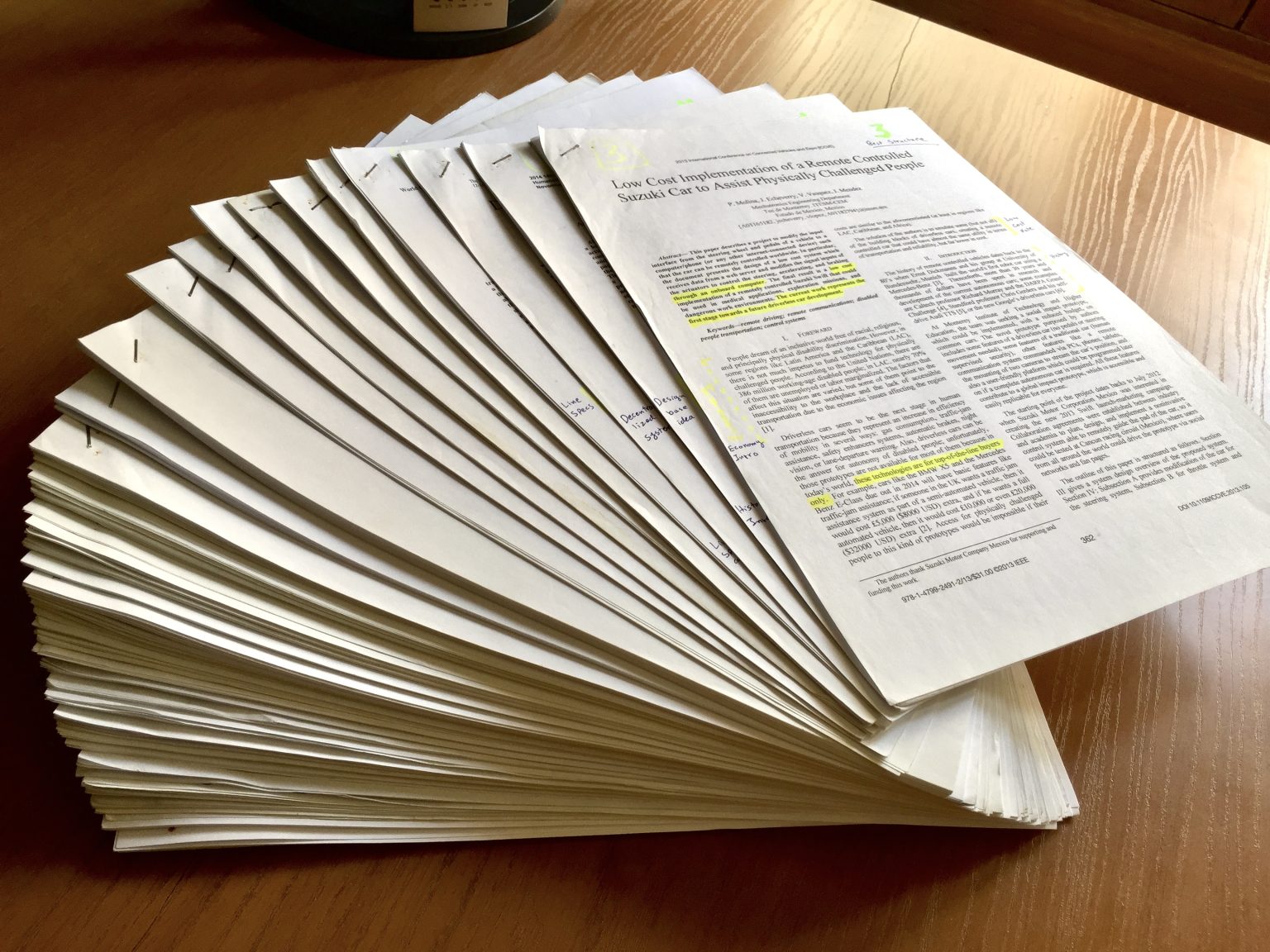
Some research papers I studied during the work on the scientific research
I started learning academic writing in English, along with extensive reading, research, and some practical experiments. This stage also involved dozens of drafts and submitting the research to several conferences where we could not publish due to the need for travel, which was impossible under the current conditions in Syria. However, after going through a difficult stage of reviewers’ feedback requiring substantial improvements to the road recognition system, the research paper was accepted in a British research journal after a year of work. Thus, Syria now has a research paper on self-driving cars in the United Kingdom!
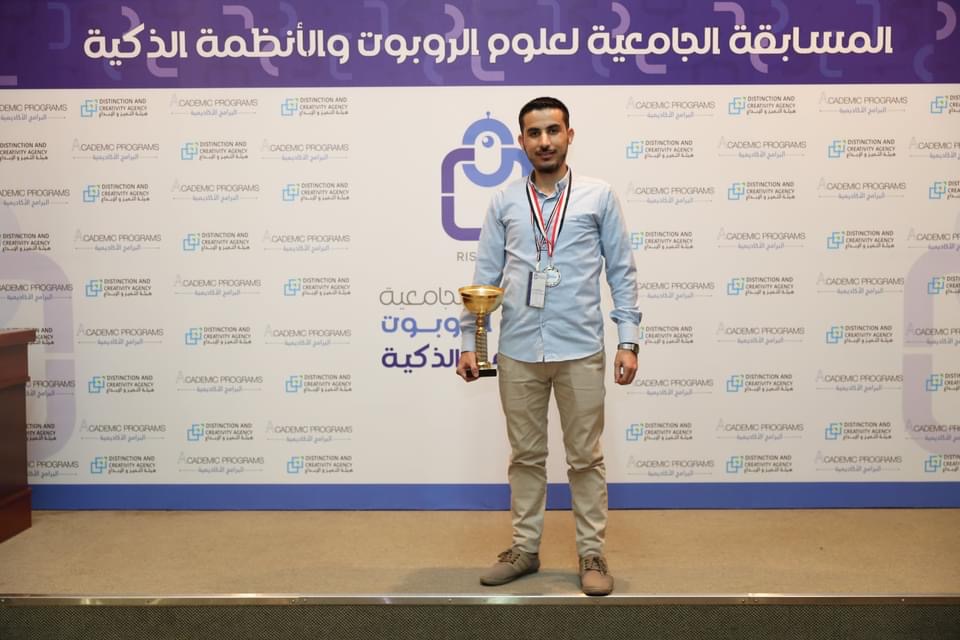
The research paper won second place in the university competition for robotics and intelligent systems science in Damascus 2021
Lessons Learnt from This Project
- There are no limits to knowledge… all the sciences we learn are useful in our lives if we decide so.
In this project, I used a large percentage of what I learned in my university life and even had to refer back to some high school books. I also expanded into sciences not covered in the university stage!
I learned that there is no absolutely useless science and that we should not restrict ourselves to the sciences we study at any stage of our lives. The real challenge is to use these sciences correctly so that they become a means for us to build the earth and a winning card in the hereafter. - The most valuable fuel that drives a person is having a goal.
Most of my work during this project was without electricity, and I went through long periods without sleep, with the longest being three days. These difficulties did not deter me from continuing to work because of an idea pushing me strongly forward! - Work teams make the difference.
I may have first learned this lesson at Beetronix, but it was soon confirmed during this project. Work teams make the difference on the ground, not individuals! - Community sometimes plays a negative role.
(“This is a useless project, funny tiny project compared to the Tesla, you haven’t achieved anything new, your idea is crazy and naive…”)
I heard all these words at the beginning and also at the end, and I decided to ignore them. You have three options: either be an unconstructive critic, be a supporter, or take the step yourself. Try to avoid the first option! - The word “impossible” is relative.
This project redefined the word “impossible” for me in this life. I started to see possibilities in myself and in young people that I never thought existed before. I then realised that the real challenge is to bring them out and direct them correctly. - Do not rush to reap the fruits, and do not compare your planting season with others’ harvest season.
Continuity and gradual work can create miracles! Make sure to take all the necessary measures until the last moment so that Allah chooses the right time for you to reap the fruits. - Behind every success are hundreds of failed experiments.
In this post, I intentionally focused on failure cases to convey this message. Remember, most people do not talk about their failed experiences, so do not think they do not exist!
Thank You for Reading My Experience!
This experience succeeded in answering the fundamental questions I posed at the beginning. I hope it has added something useful to your knowledge, and remember that true success is to conduct your own experiment to answer your questions in your own way!
